第49章
Our epizoic literature is becoming so extensive that nobody is safe from its ad infinitum progeny.A man writes a book of criticisms.AQuarterly Review criticises the critic.A Monthly Magazine takes up the critic's critic.A Weekly Journal criticises the critic of the critic's critic, and a daily paper favors us with some critical remarks on the performance of the writer in the Weekly, who has criticised the critical notice in the Monthly of the critical essay in the Quarterly on the critical work we started with.And thus we see that as each flea "has smaller fleas that on him prey," even the critic himself cannot escape the common lot of being bitten.Whether all this is a blessing or a curse, like that one which made Pharaoh and all his household run to their toilet-tables, is a question about which opinions might differ.The physiologists of the time of Moses --if there were vivisectors other than priests in those days--would probably have considered that other plague, of the frogs, as a fortunate opportunity for science, as this poor little beast has been the souffre-douleur of experimenters and schoolboys from time immemorial.
But there is a form of criticism to which none will object.It is impossible to come before a public so alive with sensibilities as this we live in, with the smallest evidence of a sympathetic disposition, without making friends in a very unexpected way.
Everywhere there are minds tossing on the unquiet waves of doubt.If you confess to the same perplexities and uncertainties that torture them, they are grateful for your companionship.If you have groped your way out of the wilderness in which you were once wandering with them, they will follow your footsteps, it may be, and bless you as their deliverer.So, all at once, a writer finds he has a parish of devout listeners, scattered, it is true, beyond the reach of any summons but that of a trumpet like the archangel's, to whom his slight discourse may be of more value than the exhortations they hear from the pulpit, if these last do not happen to suit their special needs.Young men with more ambition and intelligence than force of character, who have missed their first steps in life and are stumbling irresolute amidst vague aims and changing purposes, hold out their hands, imploring to be led into, or at least pointed towards, some path where they can find a firm foothold.Young women born into a chilling atmosphere of circumstance which keeps all the buds of their nature unopened and always striving to get to a ray of sunshine, if one finds its way to their neighborhood, tell their stories, sometimes simply and touchingly, sometimes in a more or less affected and rhetorical way, but still stories of defeated and disappointed instincts which ought to make any moderately impressible person feel very tenderly toward them.
In speaking privately to these young persons, many of whom have literary aspirations, one should be very considerate of their human feelings.But addressing them collectively a few plain truths will not give any one of them much pain.Indeed, almost every individual among them will feel sure that he or she is an exception to those generalities which apply so well to the rest.
If I were a literary Pope sending out an Encyclical, I would tell these inexperienced persons that nothing is so frequent as to mistake an ordinary human gift for a special and extraordinary endowment.
The mechanism of breathing and that of swallowing are very wonderful, and if one had seen and studied them in his own person only, he might well think himself a prodigy.Everybody knows these and other bodily faculties are common gifts; but nobody except editors and school-teachers and here and there a literary than knows how common is the capacity of rhyming and prattling in readable prose, especially among young women of a certain degree of education.In my character of Pontiff, I should tell these young persons that most of them labored under a delusion.It is very hard to believe it; one feels so full of intelligence and so decidedly superior to one's dull relations and schoolmates; one writes so easily and the lines sound so prettily to one's self; there are such felicities of expression, just like those we hear quoted from the great poets; and besides one has been told by so many friends that all one had to do was to print and be famous!
Delusion, my poor dear, delusion at least nineteen times out of twenty, yes, ninety-nine times in a hundred.
But as private father confessor, I always allow as much as I can for the one chance in the hundred.I try not to take away all hope, unless the case is clearly desperate, and then to direct the activities into some other channel.
Using kind language, I can talk pretty freely.I have counselled more than one aspirant after literary fame to go back to his tailor's board or his lapstone.I have advised the dilettanti, whose foolish friends praised their verses or their stories, to give up all their deceptive dreams of making a name by their genius, and go to work in the study of a profession which asked only for the diligent use of average; ordinary talents.It is a very grave responsibility which these unknown correspondents throw upon their chosen counsellors.